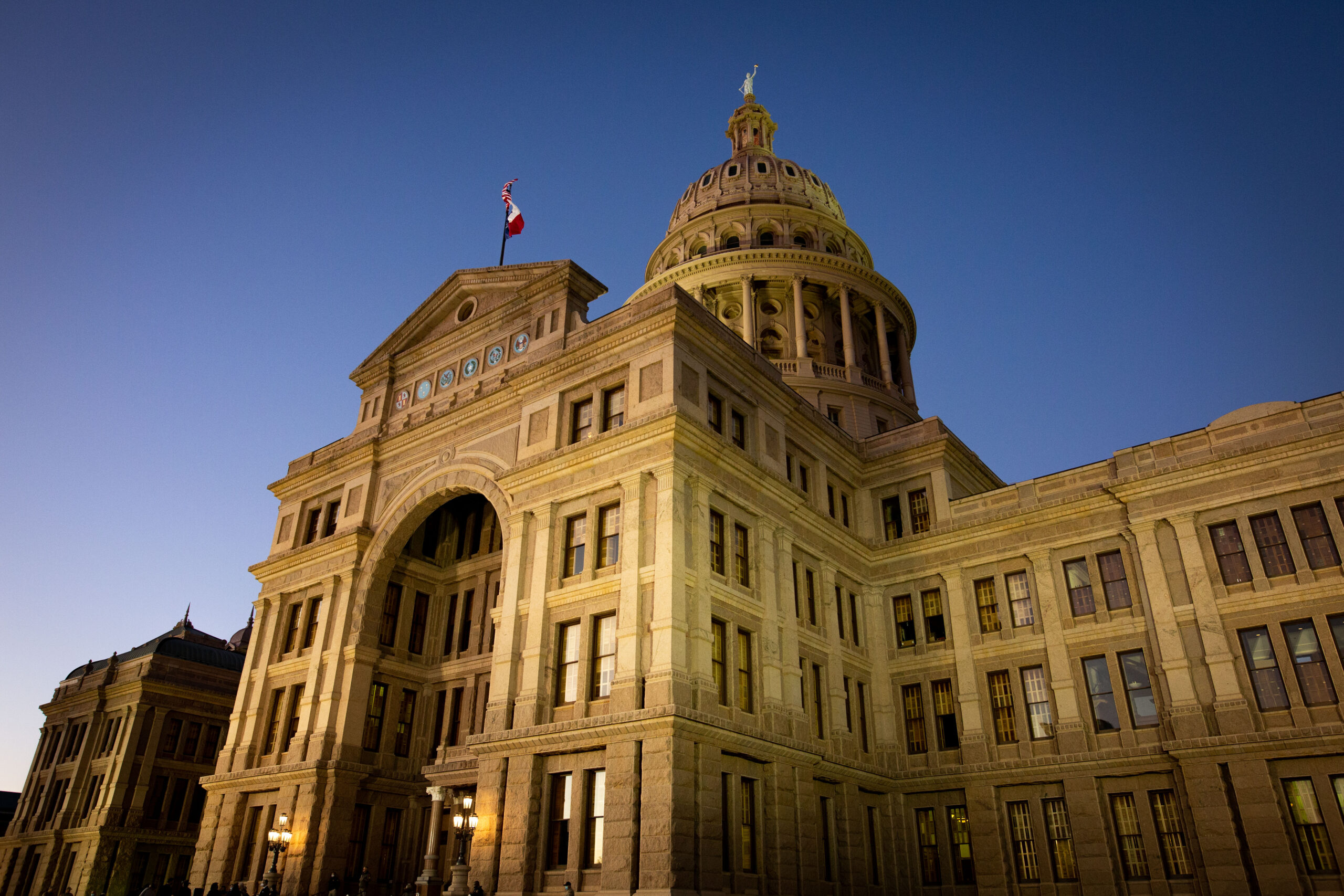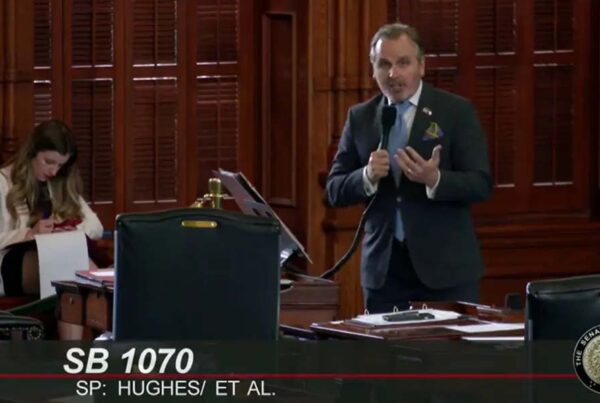Many of Texas’ newly-passed bills take effect Friday. Among them is one that cities across the state are wrestling with.
As legislation, it was HB 2127 – the Texas Regulatory Consistency Act, also known as the nickname given by critics – the “Death Star bill.”
It overrides or blocks many city ordinances and local laws and home city officials say it limits their ability to do the jobs residents voted them into office to do.
KERA News reporter Christopher Connelly joined Texas Standard to discuss. Listen to the interview above or read the transcript below.
This transcript has been edited lightly for clarity:
Texas Standard: So the cities of Dallas and Austin are among the Texas cities to pass ordinances that were tied to the pandemic. And a lot of that seems to be at the heart of what was chafing Republicans in the House and Senate who voted in support of HB 2127. Could you remind us what it was that some of the cities did that seemed to tweak some Texas lawmakers?
Christopher Connelly: Well, there’s two ordinances right now that seem to be in serious question with HB 2127.
So if you take a step back, there was all this concern about evictions during the pandemic – that people were going to lose work, they were going to lose their homes, they were going to be out when you’re supposed to stay inside and stay safe and all that.
So there was all these different measures related to curbing evictions at the federal, state and local levels. And among those were some rules that basically gave renters a little more time to pay rent. So if you’re late on rent, you have kind of a longer grace period before a landlord can evict you. And most of those have gone by the wayside. But Dallas and Austin went ahead and moved to make those rules permanent.
Those are, I think, pretty squarely in the sight of HB 2127.
» RELATED: Texas’ ‘Death Star’ bill could kill a slew of local laws. Here’s how.
Yes, but you take a look at HB 2127, and it seems to go a lot further than issues relating to housing rules – labor, agriculture, natural resources, finance – all that comes under this rather sweeping new law, no?
Yeah, absolutely.
So these are just one example of a whole, you know, unquantifiable number of rules, policies, ordinances at the local level that may be under fire. Like you said, I mean, this is broad preemption from the state, basically saying cities in a whole bunch of fields of law cannot take action that the state hasn’t already authorized.
So it calls into question a lot of things that are already on the books. It blocks other things from going on the books at the local level unless state lawmakers in Austin have said, “yeah, you can go ahead and do this.”
Now, there are a few, you know, very specific things mentioned beyond the sort of broad fields. One of those is around any rules delaying or restricting or prohibiting evictions. Those are explicitly banned, you know, very specifically in HB 2127. But you’re absolutely right to say this law goes so far beyond just these specific eviction ordinances.
» RELATED: ‘We are dying’: Houston workers protest new state law removing water break requirements
The City of Houston has filed a lawsuit against the state over this new law. What are they saying about it?
Basically, they say it is so broad and it is so vague because it just sets off these whole categories where cities are very restricted from taking any action that that broadness and vagueness puts it really askance of the Texas Constitution – that it is not actually enforceable law under the Texas Constitution and that therefore it should be thrown out by the courts.
It’s my understanding Plano and Arlington have signed on joining in the lawsuit. Dallas and Austin, interestingly enough, have not. And there’s a hearing on the lawsuit scheduled Wednesday. Could you tell us what’s at stake? What are we looking at here?
Well, I mean, this is the first hearing in what will surely be a whole probably yearslong raft of litigation. Whatever comes out of this lawsuit will probably be appealed. There may be appeals on appeals. You know, this could be going on for a long time.
I think if you take a really big step back, what is at stake are really questions of local control – what cities can and can’t do to address problems that they see in their communities. You know, people have raised questions about what this means for democracy, to vote for a city council and then have them not able to do some of the things they’re being sent to do. And it raises questions about exactly what the Texas Constitution allows the state lawmakers to tell cities they can and can’t do.













